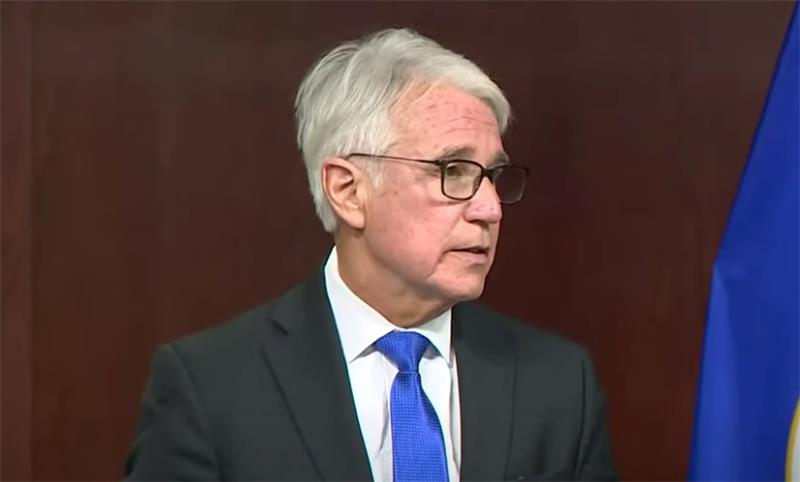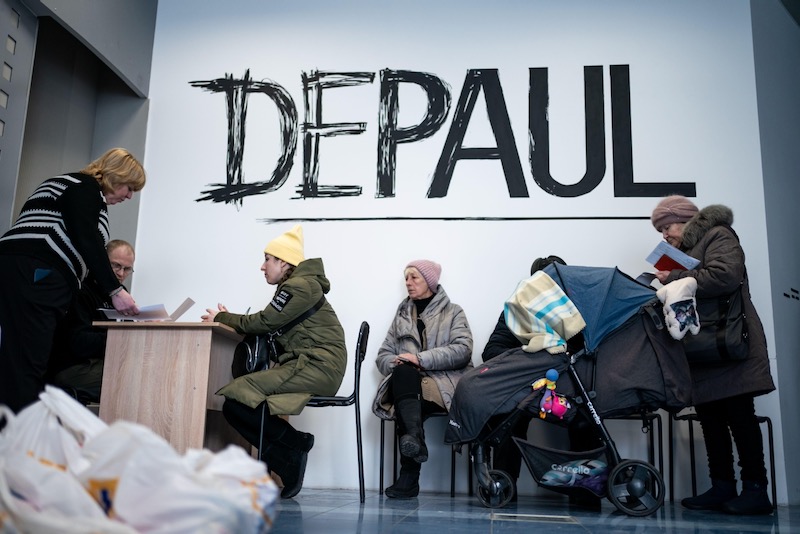One year after the Russian invasion of Ukraine, Pax Christi has expressed “deep concern for countless victims of a war that has led to death, injury, displacement, trauma, and ecological harm”.
The war of aggression against Ukraine has clearly demonstrated that no international authority exists with sufficient wisdom to address effectively the root causes or to have prevented it in the first place, the peace charity said in a statement marking today’s anniversary.
The invasion has led to almost six million internally displaced people and eight million refugees, killed more than 7,200 civilians including more than 400 children and hundreds of thousands of soldiers and caused widespread generational trauma.
In a world of highly destructive weapons, armed self-defence may trigger an escalation to extremes that can even lead to a nuclear war, Pax Christi warned, calling on the international community to facilitate diplomatic initiatives to restore the international order and the territorial integrity of Ukraine.
“We plead with Russia and Ukraine to enter negotiations directly, on neutral ground, and with a mutually agreeable mediator,” Pax Chriti said. “We highly value the many forms of nonviolent resistance to the war by Russian society and we support all Russians who protest against the war, risking arrest and imprisonment.”
Aid agency Depaul Ukraine warned that the year of war had created a significant impact on people’s mental health, particularly children, which will last long after the war has finished.
The charity, which has worked in the country since 2007, is seeing children become increasingly isolated and withdrawn after being forced to leave their homes and witnessing horrific attacks.
For the past year, people in Ukraine have lived with bombings and missile attacks which have displaced millions, injured and killed thousands and left some too afraid to leave their bomb shelters.
Father Vitaliy Novak, chief executive of Depaul Ukraine, said: “One year is a long, long time particularly for a child. Children have become isolated as they’ve lost their homes and can’t attend school.
“They’ve forgotten how to socialise and play. We see children are too anxious to go outside, the playgrounds here are empty.
“When the war first started people couldn’t believe what was happening and they were paralysed with fear. People are traumatised by the past year. But life has to continue, and people are resilient.
“We get strength from the support of the international community.”
Cafod, which partners with Depaul and has an ongoing appeal for donations, said: “Every human life is priceless. We have called for an urgent diplomatic solution and a lasting ceasefire to prevent further suffering and to bring peace back to the region.
“Last year we urged you to write to the UK Home and Foreign secretaries to push peace in Ukraine and safety for refugees. Thanks to your support and campaigning, we had a total of 3,482 people who had emailed asking them to take actions.”
| One year on, how the people of Ukraine are showing incredible resilience. |
In Germany, Bishop Georg Bätzing, chair of the bishops’ conference, said, “The conflict that began in 2014 with the annexation of Crimea and military action in eastern Ukraine has dramatically expanded. In violation of all international law, the government of the Russian Federation has decided to occupy and subjugate the neighbouring country.
“To date, this has only been partially achieved. Because the resistance of the Ukrainians was and is much greater than most had assumed.”
Warning against the assumption that excessive violence was a thing of the past, he added: “Didn't we think that at least the big wars were banned from Europe – and only a transitional phenomenon in other parts of the world, which we regard with unacknowledged arrogance as less civilised?
“Didn't we think that the law-based order of peace would be valued across our continent? Didn’t we think that we had become engineers of peace, so to speak, through a good reconciliation of interests and networks of ever closer economic cooperation?”
It was wrong to think our nations “immune to systematically applied and excessive violence. Not only because we haven’t yet found the right institutions to end the war. But above all because we are sinners.
“Because we don’t take the dark drives that are also part of human existence seriously enough and therefore give in to them again and again. Because greed and the will to power, admitted or not, dominate one’s own life.
“In a word: because we don't give enough space to love. At the same time, we recognise something provisional and fragmentary in all our efforts: peace is never final, can never be won once and for all.
“I invite you all to pray in this spirit for peace in Ukraine and around the world. God is love. If we allow ourselves to be ignited by it, we can overcome violence and serve peace. Let us ask God to make us men of peace.”



 Loading ...
Loading ...